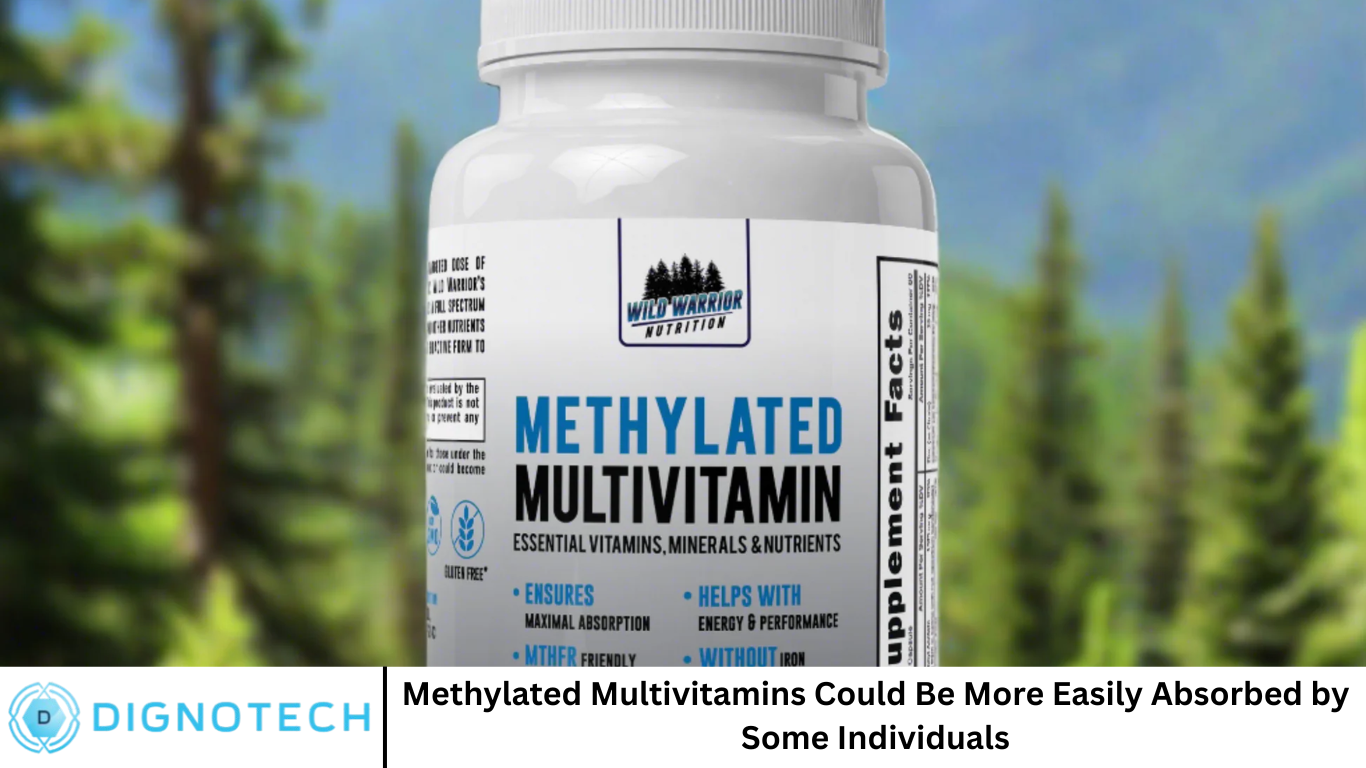Methylated Multivitamins Could Be More Easily Absorbed by Some Individuals

Hi everyone! How are you all doing? Welcome to dignotech.com! Methylated multivitamins have gained increasing attention in recent years as people become more conscious of how their bodies absorb and utilize nutrients. These vitamins are specially processed to be more bioavailable, meaning they can be more easily absorbed and utilized by the body. For some individuals, particularly those with certain genetic variations or health conditions, methylated vitamins can provide a significant advantage. This article explores the benefits of methylated multivitamins, how they work, who may benefit from them, and answers frequently asked questions.
What Are Methylated Multivitamins?
To understand methylated multivitamins, it’s essential to first understand what “methylation” means. Methylation is a biochemical process that involves the addition of a methyl group (one carbon atom bonded to three hydrogen atoms) to a molecule. In the context of vitamins, methylation refers to a process that makes certain vitamins more bioavailable to the body.
Some vitamins, such as B vitamins, require methylation to become active and usable by the body. Without proper methylation, the body may not be able to fully absorb and utilize these vitamins, leading to deficiencies or reduced effectiveness. Methylated multivitamins are designed to bypass this issue by already providing the active, methylated form of the vitamin.
For example, folate (vitamin B9) in its synthetic form, folic acid, needs to undergo methylation in the body before it can be used effectively. However, some individuals have a genetic mutation that impairs this process, leading to a reduced ability to convert folic acid into its active form. Methylated folate (also called L-methylfolate) is already in its active form, so people with this genetic variation can absorb and use it more easily.
Methylated multivitamins include various B vitamins like B12 (in its methylcobalamin form), folate (as L-methylfolate), and other vitamins that have been specifically methylated for enhanced absorption.
Why Methylation Matters
Methylation plays a crucial role in many biochemical processes in the body, including gene expression, detoxification, neurotransmitter synthesis, and energy production. When vitamins undergo methylation, they become active forms that the body can use more readily. For example:
- Methylated B12 (Methylcobalamin): This form of vitamin B12 is more easily absorbed and used by the body compared to cyanocobalamin, the synthetic form commonly found in supplements and fortified foods. Methylcobalamin helps support nerve function, red blood cell production, and DNA synthesis.
- Methylated Folate (L-Methylfolate): Folate is essential for DNA synthesis, cell division, and the formation of red blood cells. Methylated folate is the active form that the body can use directly, without needing to convert it first. This is especially important for individuals with the MTHFR gene mutation, which impairs the ability to convert folic acid into its active form.
- Methylated Vitamins Support Detoxification: Methylation is a critical process for detoxification, as it helps the body eliminate toxins and waste products. By using methylated vitamins, individuals may support their detoxification processes more effectively.
Who May Benefit from Methylated Multivitamins?
While most people can absorb and utilize regular multivitamins without any issues, certain individuals may benefit more from methylated forms of vitamins. These include:
People with MTHFR Gene Mutations
One of the most well-known genetic variations that affects methylation is the MTHFR gene mutation. The MTHFR gene is responsible for producing an enzyme that helps convert folic acid into its active form, L-methylfolate. However, some people have mutations in this gene that reduce the enzyme’s effectiveness, making it harder for their bodies to process folic acid.
People with the MTHFR mutation may have difficulty absorbing or utilizing regular folic acid supplements and may experience symptoms of folate deficiency, even if they are consuming adequate amounts of folic acid. Methylated folate bypasses this issue, making it easier for those with MTHFR mutations to absorb and use the vitamin.
People with Digestive Issues
Digestive issues, such as celiac disease, irritable bowel syndrome (IBS), or inflammatory bowel disease (IBD), can interfere with the body’s ability to absorb nutrients from food. In these cases, methylated vitamins may offer a more easily absorbed form of nutrients, helping to overcome digestive absorption barriers.
Older Adults
As people age, their bodies can become less efficient at absorbing and utilizing certain nutrients, including vitamins. This is especially true for B vitamins, which are critical for energy production, nerve health, and cognitive function. Methylated vitamins may offer better absorption and help older adults maintain healthy vitamin levels.
Individuals with Poor Methylation Efficiency
Some people have a naturally lower capacity for methylation due to genetic or environmental factors. These individuals may struggle to convert vitamins into their active forms. Methylated vitamins can help provide these individuals with the nutrients they need in an already bioavailable form.
Pregnant Women
Pregnancy places increased demands on the body’s nutritional needs, especially for folate, which is critical for fetal development. Methylated folate, in particular, is recommended for pregnant women, especially those with MTHFR mutations, as it is more readily utilized by the body and can help prevent birth defects.
The Benefits of Methylated Multivitamins
Better Absorption and Utilization The primary advantage of methylated multivitamins is improved absorption. Methylated forms of vitamins are already in their active state, so the body doesn’t need to perform additional steps to make them usable. This is especially important for individuals who have difficulty with certain biochemical processes, such as those with MTHFR gene mutations.
Support for Individuals with Genetic Variations As mentioned, people with the MTHFR gene mutation have trouble converting folic acid into its active form. Methylated folate ensures that these individuals can get the folate they need without relying on the body’s ability to convert it.
Enhanced Detoxification Methylation is crucial for detoxification pathways in the body, helping to eliminate toxins and waste products. By providing methylated vitamins, the body may have better support for detoxification processes.
Brain and Nerve Health Methylated B12 (methylcobalamin) and methylated folate play key roles in nerve health, cognitive function, and mood regulation. These vitamins help maintain the integrity of nerve cells and support the synthesis of neurotransmitters, which are critical for mental clarity and emotional well-being.
Reduced Risk of Deficiencies Methylated vitamins reduce the risk of nutrient deficiencies by ensuring that the body can absorb and utilize vitamins more effectively. This is particularly beneficial for individuals with health conditions that interfere with nutrient absorption.
Improved Energy Levels B vitamins, particularly B12 and folate, are essential for energy production in the body. Methylated versions of these vitamins can be more efficiently used by the body, helping to combat fatigue and support sustained energy levels.
Are Methylated Multivitamins Safe?
Methylated multivitamins are generally considered safe for most people. However, as with any supplement, it’s essential to consult a healthcare provider before starting a new regimen, especially if you have any underlying health conditions or are taking other medications.
For example, too much methylated folate can cause symptoms of vitamin B12 deficiency, as the two vitamins work together in the body. Therefore, it’s important to take the correct doses and avoid exceeding recommended limits.
Additionally, people with certain conditions, such as bipolar disorder, should consult their doctor before using methylated B vitamins, as high doses of folate or B12 may have an impact on mood stability.
Frequently Asked Question
What is the difference between methylated and non-methylated vitamins?
Methylated vitamins are in their active form, ready to be absorbed and used by the body. Non-methylated vitamins, such as folic acid and cyanocobalamin, require conversion in the body to become active, a process that can be impaired in some individuals.
How do I know if I need methylated vitamins?
If you have digestive issues, genetic mutations like MTHFR, or conditions that affect nutrient absorption, methylated vitamins may be beneficial. A healthcare provider can help determine if methylated vitamins are necessary based on your individual needs.
Are methylated multivitamins more expensive?
Methylated multivitamins may be more expensive than regular vitamins due to the added bioavailability, but the increased absorption may make them more effective, potentially reducing the need for higher doses or additional supplements.
Can I take methylated vitamins if I’m pregnant?
Methylated folate (L-methylfolate) is particularly recommended for pregnant women, especially those with MTHFR mutations, as it is more easily absorbed and utilized. Always consult your healthcare provider before taking any supplement during pregnancy.
Do methylated multivitamins have any side effects?
Methylated vitamins are generally safe, but taking excessive amounts of certain vitamins, such as B12 or folate, can lead to side effects like nausea, headaches, or insomnia. It’s important to follow the recommended dosage.
Can methylated vitamins help with fatigue?
Yes, methylated B vitamins, particularly B12 and folate, play a critical role in energy production and can help reduce fatigue, especially in individuals with low levels of these nutrients.
How long does it take to feel the effects of methylated multivitamins?
The time it takes to feel the effects of methylated multivitamins can vary depending on the individual. Some people may notice improvements in energy levels and mood within a few days or weeks, while others may take longer.
Conclusion
Methylated multivitamins provide a valuable alternative for individuals who have difficulty absorbing or utilizing regular vitamins. Whether due to genetic mutations, digestive issues, or age-related changes in absorption efficiency, methylated vitamins offer a more accessible and effective way to support overall health. By ensuring that vitamins are already in their active, bioavailable form, methylated multivitamins can help individuals achieve better health outcomes and improve energy levels, brain function, and detoxification processes. However, as with any supplement, it is important to consult a healthcare provider to determine if methylated multivitamins are right for you.




